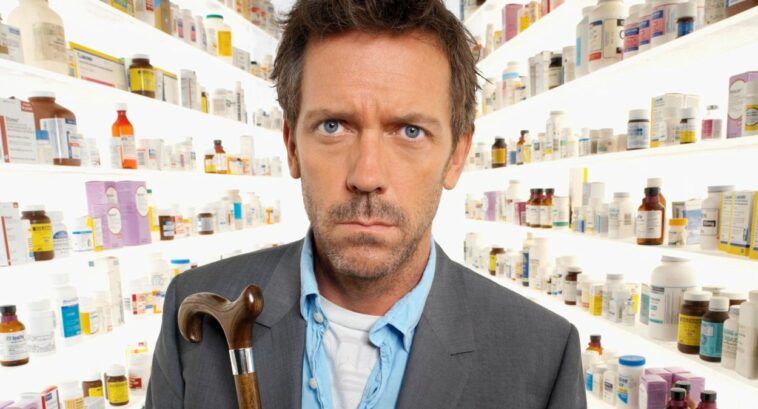Part of the appeal of House is the power fantasy of it. Dr. Gregory House is a brilliant detective, based somewhat on Sherlock Holmes, one of the all-time great detectives in fiction. “Competence porn” is a phrase I’ve heard in regards to this kind of thing, and it is an undeniable pleasure watching people be damn smart and capable and good at their work. In this case, House is a doctor who’s so good at figuring out what’s wrong with people that he can get away with being inappropriate, unprofessional, and just downright rude all the time.
He’s the loveable rogue archetype, but stretching the limits of the “loveable” aspect as far as the show thinks it can pull off. He’s smug and superior, but avoids getting punished for it by being constantly right—not morally, but scientifically, which is valuable enough as a Head of Diagnostic Medicine. The way he approaches medical cases as puzzles to be solved, and his corresponding disdain for good bedside manner, make him stand out against the many other TV doctors in the public consciousness. Hugh Laurie’s performance manages to make those traits watchable, and occasionally even charming.
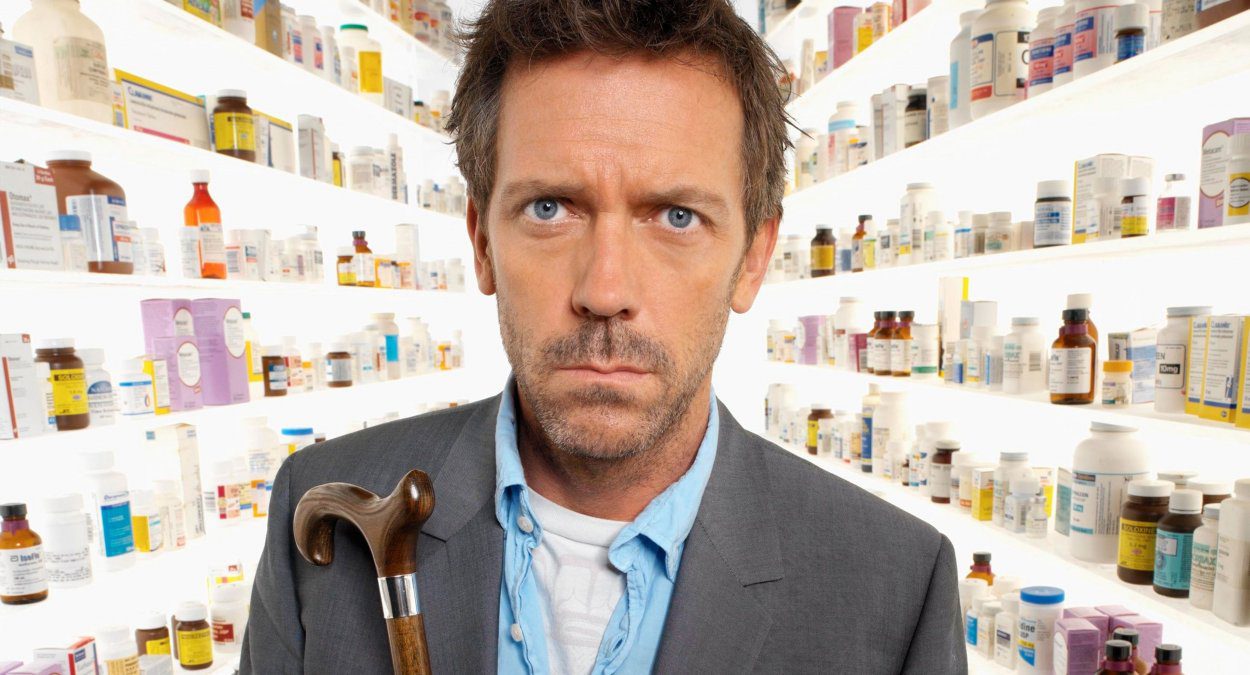
That said, the show wouldn’t be a very good show, and the character wouldn’t be a very good character, if he didn’t fail at least some of the time. Sometimes it takes the form of him making a crucial mistake, and sometimes it takes the form of him having to confront something that was never in his power to change in the first place. That’s where the show shines—when the great man is humbled. And none of his losses stick in the collective mind of the fandom as potently as the two-part Season 4 finale.
The first part, “House’s Head”, begins with House in a strip club. This is not, in itself, an unusual place to find him, (though I think it’s the only time we actually see him go to one), but what is unusual is that he can’t remember how he got there. He can feel a bloody wound on his head, and it seems an injury is playing monkey business with his short-term memory, but it’s only when he leaves the club and walks out onto the catastrophic aftermath of a bus crash that we get a grasp on how serious the situation is.
He is sent to the ER of his own workplace, Princeton-Plainsboro Teaching Hospital, along with some of the other survivors, (about half of them are sent to a different hospital) but of course, because this is an episode of House, it isn’t just as simple as “House has a bump on his head and needs to be treated.” He can remember one thing very vividly: he saw something on that bus before he blacked out, and whatever it was that he saw was a sign that somebody is in mortal danger. He starts with no more information than that, but this doesn’t deter him, and House goes immediately to work trying to figure out which of the passengers has more wrong with them than meets the eye. House’s best friend Dr. Wilson, his boss Dr. Cuddy, and the ER senior attending Dr. Cameron all insist that he go home and rest. It is the middle of the night and he does have a cracked skull, after all. But even his desire for self-preservation can’t get in the way of his desire to get to solve the case, and he puts his diagnostic team to work chasing every possible lead.
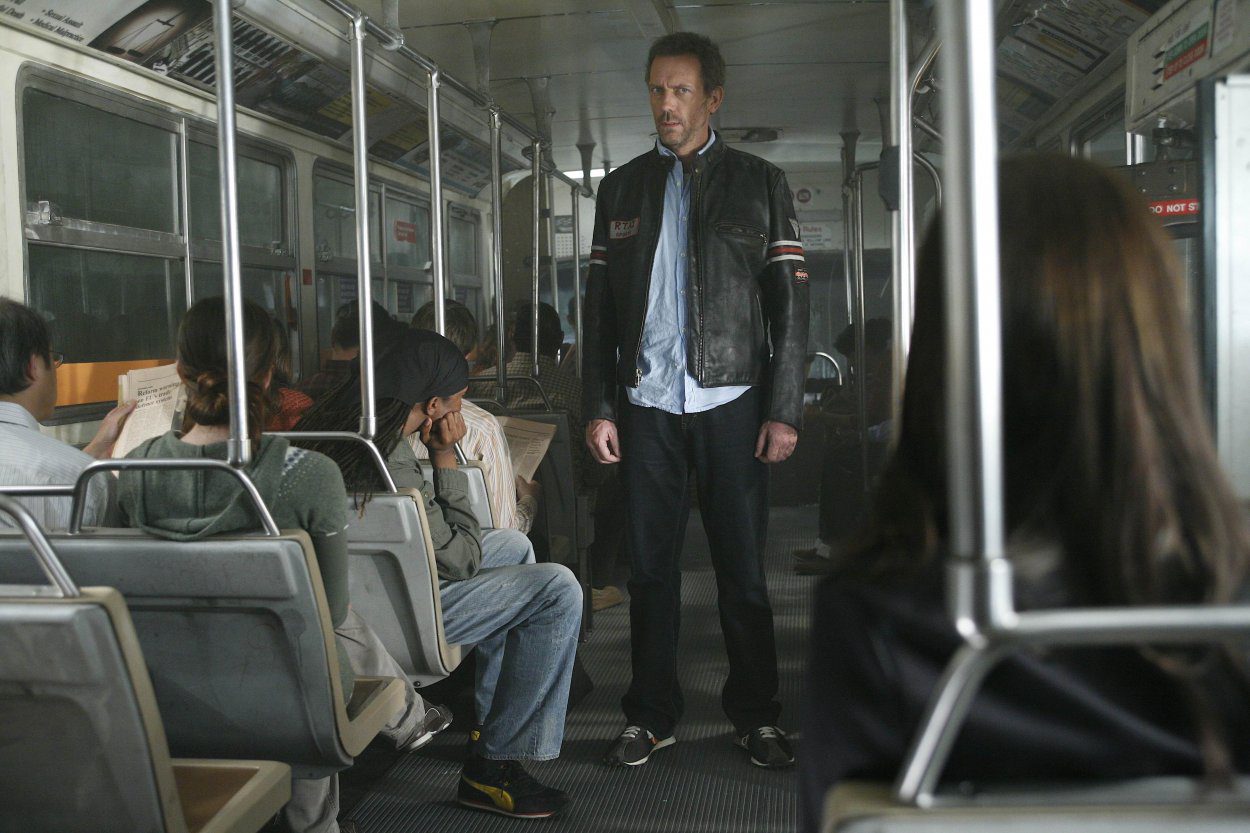
Beyond starting the case with no known patient or symptoms, the particular gimmick of this story comes in the form of little trips into House’s subconscious, as he tries various methods (hypnosis, sensory deprivation, Alzheimer’s medication) to unlock his lost memories of the rest of that evening. Every time, he gleans a little more information about what happened, but the full answer is still hidden from him—the answer in this case represented by a vision of a mysterious young woman whose face does not belong to any of the passengers.
House’s complete disregard for his own health is alarming to his co-workers and his boss (twice Cuddy tries to shut him up in his apartment in a vain attempt to get him to rest), but since we in the audience know that House isn’t going to die halfway through the show named after him, this first episode in the two-parter maintains a lightness of tone. Periodic trips into House’s subconscious give the show an exciting shot of whimsy, visual flair, and even some cheesecake—famously, one scene features a mental projection of Cuddy performing a strip-tease for House while they discuss diagnostics. In the final few minutes of the episode, however, things take a darker turn, as the memory of the crash finally returns to House. The person who is dying is Wilson’s girlfriend, and House’s former employee, Amber.
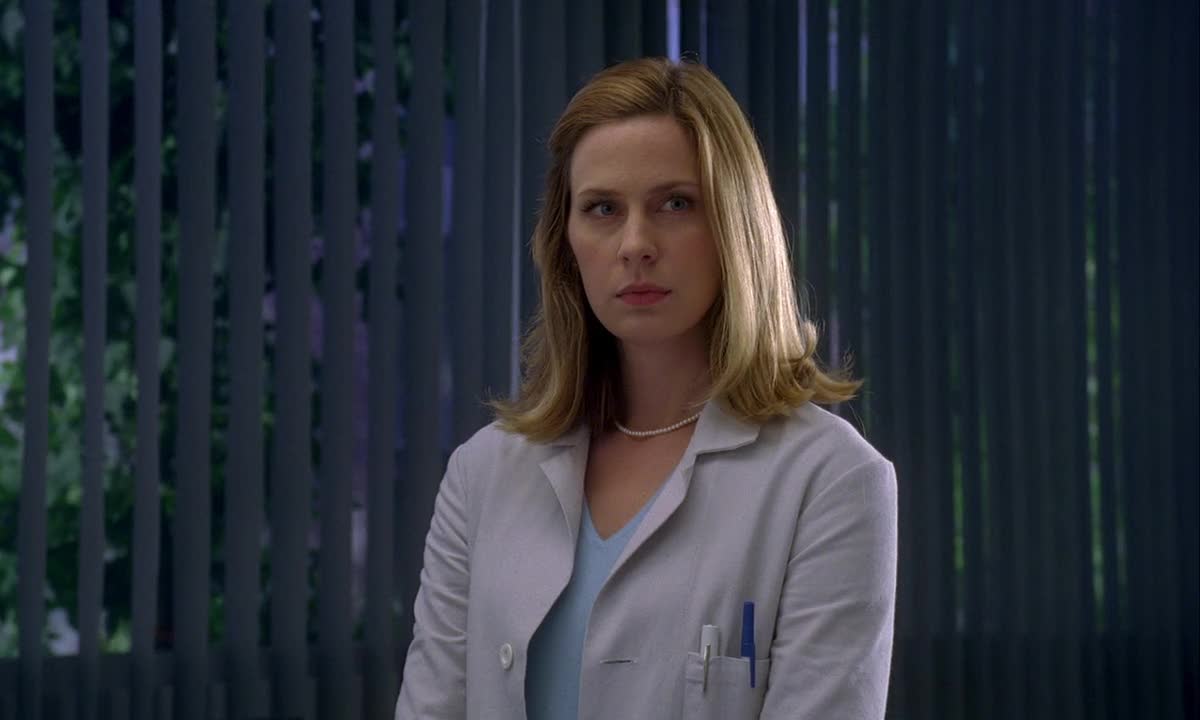
Going back in time briefly, Season 4 started in a somewhat controversial place, with House’s former team all having either quit or been fired in the Season 3 finale. While Foreman returned to the team partway into the season, and Chase and Cameron stayed on the show in a less featured capacity with other jobs at the same hospital, the first half of Season 4 was dedicated to assembling a new team of fellows for House. Among the candidates he gave a trial run was Amber Volakis, nicknamed “Cutthroat Bitch” for the ruthless, competitive attitude she exhibited in the attempt to keep her place on House’s team. Her penchant for lying and manipulation did not endear her to her colleagues, and ultimately she lost out on the permanent position on House’s team.
After a few episodes away, she was reintroduced to the show as Wilson’s surprising new girlfriend—surprising because of the contrast between her seemingly self-interested nature, and Wilson’s own compulsively nice, self-sacrificing nature. Much is made of the parallels between Amber and House, especially by House himself, but the fact is that Amber’s relationship with Wilson is much healthier than House’s. For all the scheming and the stubborn damn-the-rules determination the two characters share, Amber isn’t damaged the way that House is, and she can take care of herself emotionally in a way that House can’t/won’t. She doesn’t want codependency, she wants a partnership with someone who can advocate for his own needs. This, apart from House’s antagonistic nature towards people in general, is part of what makes him so adversarial with Amber in the latter half of the season.
After the crash, Amber had no ID on her, and was listed as a “Jane Doe” and sent to the other hospital. Of course, even once they know it’s her—the “who” is only half the problem. The other half is the “what”—what is endangering her, and what symptom did House see her exhibit that tipped him off to the danger? In an average episode it takes a while for the patient’s situation to go from Bad to Worse, but since we’re in the second half of a two parter, “Wilson’s Heart” basically jumps straight to Worse, with Amber’s condition deteriorating for reasons that have nothing to do with her bus crash injuries. House and Wilson buy themselves time to diagnose the problem by putting her into protective hypothermia.

Meanwhile, the team is shaken by the process of treating a former colleague. In particular distress is Dr. Hadley (nicknamed “Thirteen”), whose mother died of Huntington’s disease at a young age, and who is well aware that she is likely to have inherited Huntington’s, but has never been tested to know for sure. Seeing that a colleague of her own age dying before her eyes is getting to her, House confronts her about the way this is undermining her performance on the case, insisting that she deal with it by finding out for certain whether she has Huntington’s or not. Thirteen throws it back in his face by saying that he’s screwing up the case more than she is, since his friendship with Wilson is causing uncharacteristic caution in his courses of action.
Although Thirteen doesn’t feature too prominently in this particular episode, scenes like this are emblematic of why she is hands-down my favorite one of House’s permanent team members. Her struggle with her own questionable life expectancy and the way it informs the way she behaves towards life makes for great character study on its own, and it plays excellently off House’s own issues. They recognize (and criticize) each other’s self-pity and fatalism due to their own experiences. Each pushes against the other in some unspoken attempt to help with what they have trouble helping in themselves.
As unsuccessful testing continues, we go from Worse to Even Worse, as Amber’s organs start to fail. House turns to one final desperation attempt to recover his memories from the night of the bus crush: deep brain stimulation. The electrical impulses to his brain finally unlock a full memory of that evening, and we discover the truth of why House and Amber were on that bus together, and what happened to Amber then that is causing her multi-system organ failure now. House went to a bar after work that evening and got so drunk that the bartender took his keys. When House called Wilson for a ride home, Amber answered and came instead, since Wilson was on call.
The surly-as-usual and drunker-than-usual House stormed out of the bar when Amber wouldn’t have a drink too, and got on the bus, where Amber followed to return him his cane. On the bus, House saw Amber taking amantadine pills to treat the flu she was fighting off, and looking back on this memory, present-House puts the clues together. Because of the kidney damage Amber suffered in the crash itself, her body was no longer able to filter the amantadine, and dialysis will not help. It’s too late now. It was too late from the moment they started treating Amber.
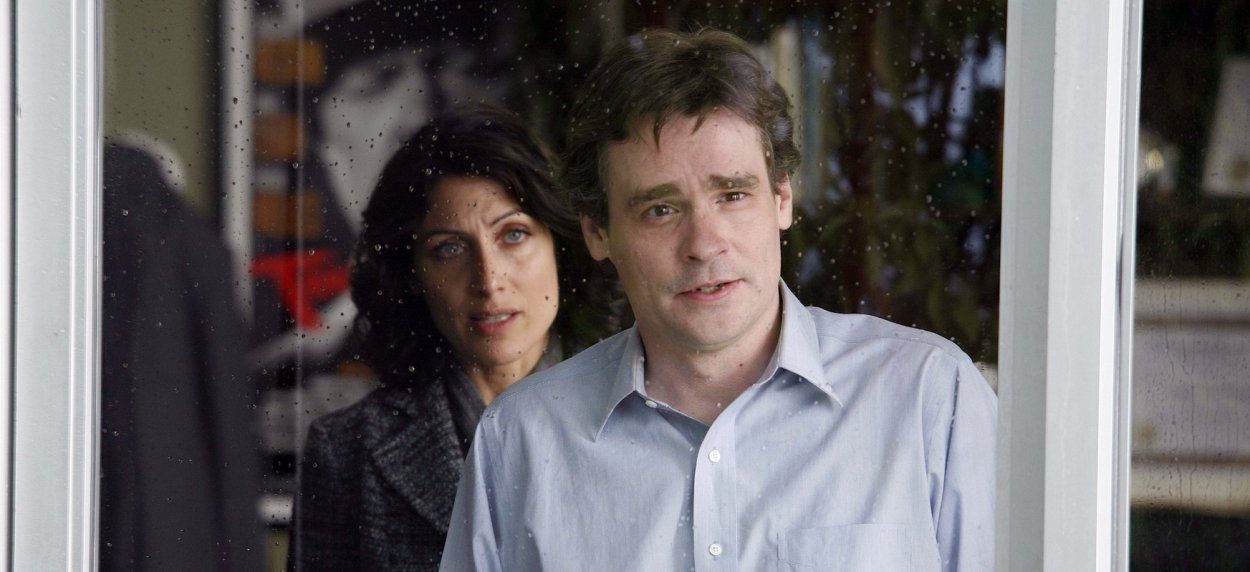
And here’s the part where I start crying and pretty much don’t stop until the end of the episode. Yeah, I hope I didn’t get your hopes up that this one was going to have a happy ending.
House seizes during the brain stimulation, putting him into a coma, and leaving his team, and Wilson, to deal with Amber. I say deal, but there’s really nothing to be done at this point. The amantadine poisoning in her system is too severe, and there was never a way they were going to save her. Wilson has Amber woken up so that they can say goodbye to her. Robert Sean Leonard really has a habit of starring in things that make me cry, from Dead Poets Society to Swing Kids, and this scene is the pinnacle of that. There’s such an awfully real tenderness in the way they hold each other as they share their final moments together. Amber faces her death with grace; Wilson asks her why she isn’t angry, and she responds “That’s not the last feeling I want to experience”.
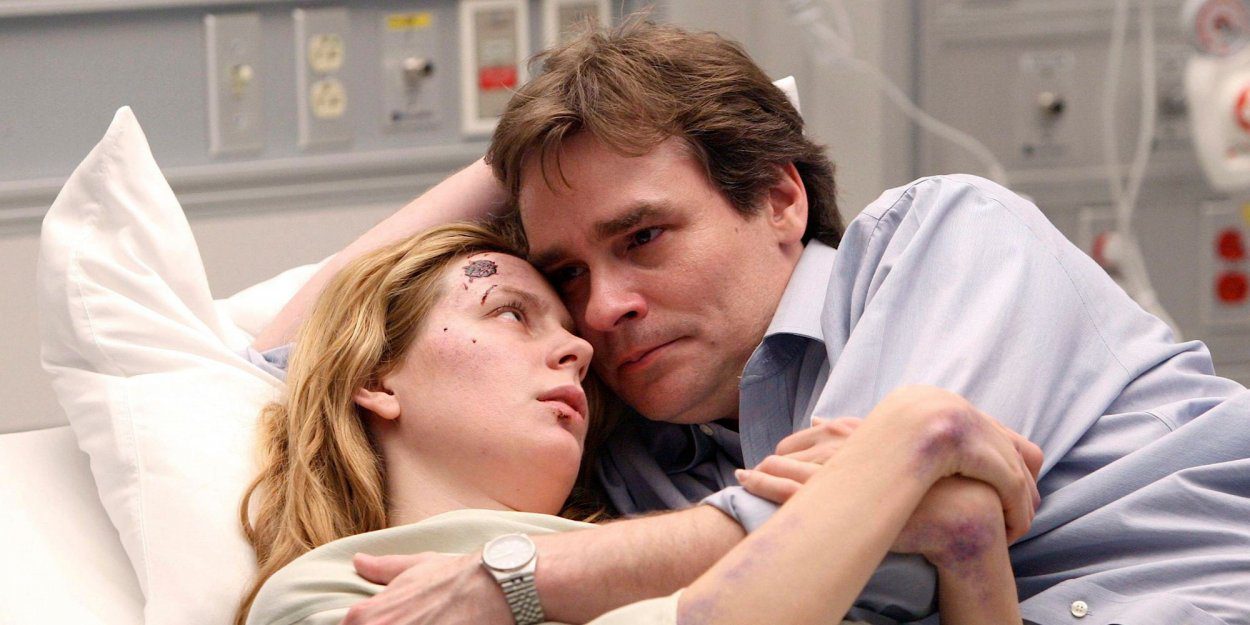
But the last goodbye in the episode is back in House’s head. One more time, we enter his subconscious as he lies comatose in a hospital bed, and deals with his failure alongside a vision of the woman whose life was threatened by his selfishness in the first place, and whose death was beyond his power to prevent. He wishes that he had died instead of her, and that he didn’t have to return to the conscious world to face the consequences of his shortcomings. He doesn’t want to go back to his chronically pained body. He doesn’t want to go back to the possibility of his only friend hating him forever. But as the vision of Amber says to him before he wakes up, “You can’t always get what you want.”
Anne Dudek’s performance as Amber is fantastic in this entire episode and season, but there’s something striking about the way she embodies this particular scene—part House’s conscience, part angelic figure. In both roles combined, she represents the way that some things are beyond his power to control, and how he has to learn to face those things and accept that, no matter how painful it is.
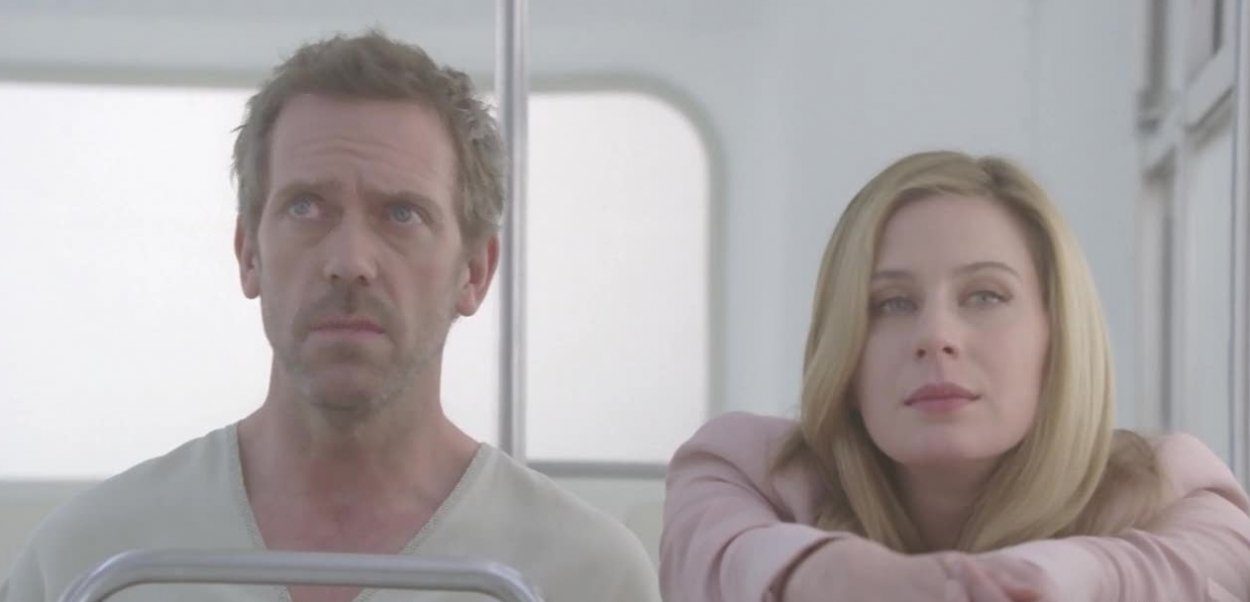
The survivors deal with their pain in their own ways. Cuddy has been waiting at House’s bedside for what is clearly a long time. Thirteen finally confirms her Huntington’s diagnosis. House’s original team commiserate over drinks. Wilson returns to his and Amber’s apartment to find the note she left for him that he never saw, telling him she went to pick up House. And have I mentioned the crying I’m doing? The amount of crying is really a lot.
This finale really encapsulates so much of what makes House work when it’s at the top of its game. It’s the detective-story mystery solving, with all the cleverness and playfulness and yes, competence porn that we enjoy in these kinds of stories, and the pathos we need from both stories about life-and-death crisis, and stories about men as arrogant as House. The conflict between the desire to save people and the reality of not being able to is, at least to me as a layman, the most emblematic conflict of stories about the medical profession.

